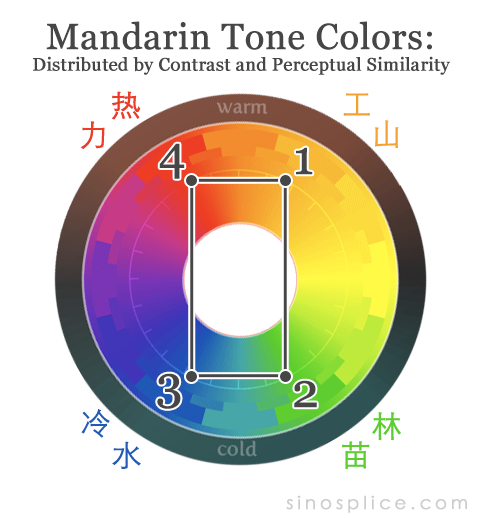16
Aug 2009Physalis: Another Weird Fruit in China
One of the things I love about living in China is that I just keep on discovering bizarre things. I thought I had already seen pretty much all the “alien” fruits China had to offer, and then recently a co-worker brought some “姑娘” back from China’s northeast. Apparently these are called physalis in English. (How did I miss them all this time??) Anyway, bizarre, and kinda good!
From Wikipedia on physalis:
> The typical Physalis fruit is similar to a firm tomato (in texture), and like strawberries or other fruit in flavor; they have a mild, refreshing acidity. The flavor of the Cape Gooseberry (P. peruviana) is a unique tomato/pineapple-like blend. Physalis fruit have around 53 kcal for 100 grams[2] , and are rich in cryptoxanthin.
Here are some photos from Flickr, all taken by their respective owners:


Unfortunately, none of the photos I was able to find on Flickr included a picture of what the inside of the fruit looks like. I attempted a photo at night with my iPhone, and it didn’t turn out great, but you get the basic idea:
The seeds kind of reminded me of green pepper seeds, but smaller. Here’s a Chinese article with more pictures and info in Chinese.
15
Aug 2009Unaccustomed Earth
Today I was reading Unaccustomed Earth, a collection of stories which owes its title to this great quote from Nathaniel Hawthorne’s The Custom-House:
> Human nature will not flourish, any more than a potato, if it be planted and replanted, for too long a series of generations, in the same worn-out soil. My children have had other birthplaces, and, so far as their fortunes may be within my control, shall strike their roots into unaccustomed earth.
Well put.
11
Aug 2009Tone and Color in Chinese
In his book Chinese through Tone and Color, author Nathan Dummitt presents his system of color-coded tones. In his own words:
> I hope that my system gives a context, even for non-visual learners, for distinguishing between the four tones in Mandarin and providing a mnemonic system to help them remember which tone goes with a particular word.
From the moment I first heard of this idea, I was intrigued by it. Associating tones with colors does open up a lot of possibilities. Once the system is internalized, you can drop tone marks and tone numbers altogether, and you can tone-code the Chinese characters themselves using color. (The best non-color approximation to this would be writing the tone marks above the characters, which you will find in some textbooks and programs.) So I was very receptive to this idea.
Despite being very open to the concept, when I saw the actual colors chosen to represent each tone, they just felt wrong to me. The pairings Dummitt chose were:
Why would these colors feel wrong to me? How could the tone-color associations be anything but arbitrary?
The reason that the colors felt wrong to me was that I had already thought about the relationships between the tones and my own perceptions of those tones. I had even (briefly) considered color when I sketched my “Perceptual Tone Contours” idea:
Specifically, I felt that first and fourth tone feel similar, and that second and third tone feel similar. I believe that perceived similarity is strong enough that it affects both listening comprehension and production. This is why I purposely colored first and fourth tone red in my diagram, and second and third tone blue.
An Alternate Color Scheme
OK, so now we’re getting down to the point of my post. As a thought exercise I asked myself: If I had to assign colors to the four tones, which colors would I use?
In answering this question, one has to believe that there are underlying principles which, when followed, might produce better results. Otherwise, arbitrary assignment is fine. So what are the principles? I have two:
1. The colors need to have a high degree of contrast so that they will stand out on a white background and not be confused with each other.
2. The colors chosen need to reflect the appropriate perceptual similarities.
There are other considerations you might take into account if you want to be super-thorough, of course. From an Amazon reviewer of Dummitt’s book:
> If a person was going to design a color code tone system they would probably want to avoid using red and green in the same color scheme. Red – green color blindness causes an inability to discriminate differences in red and green. Hence the testing when you get your driver’s license. 5 to 8 percent of males have this color blindness.
> Using red and orange in the same scheme is also not very bright. Much language learning is done on buses, trains, planes and their attendant stations. Lighting is sub-optimal in all these situations and much worse in China. Low light intensity impairs the ability to discriminate red from orange.
These points have some merit, I suppose, but I’m not sure what colors they leave. I’m sticking to the two principles I listed above. I don’t see how you’re going to avoid either red or orange altogether if you need easily distinguishable, high-contrast colors.
Regarding the principle of high contrast, I can’t disagree with Dummitt’s choices. You can’t choose yellow, and the ones he chose are easy to distinguish quickly.
As for perceptual similarities, I would reflect these similarities by grouping the four tones into two warm and two cool colors. In my Chinese studies over the years, I have often associated fourth tone with aggression or anger, both concepts which I would associate with the color red. Red = fourth tone is the strongest association I have, but from there, all the others fall into place. You can’t use yellow (poor contrast), so orange is your other warm color, going to first tone. My diagram has fourth tone and second tone diametrically opposed (falling versus rising), and green is directly opposite red on the color wheel, so I would go with green for second tone. That makes third tone blue.
The results:
08
Aug 2009Translation with a Conscience
Translation Party is a website built using Google Translate. The idea is to take an English sentence, translate into Japanese, then back into English, and keep going back and forth until an equilibrium is reached and the translation stabilizes.
I tried out various different sentences. Here’s what I got for “China and Japan will never get along“:
I knew Google’s motto is “don’t be evil,” but I didn’t expect that to result in translations that lecture (politely). Still, pretty cool.
Anyway, I recommend you play around with Translation Party. It’s a very simple concept; would love to see it done in more language combinations (especially Chinese to English!).
06
Aug 2009The Spaced Repetition Party
So you’re at a party. It’s not some crazy kegger, it’s just one of those social mixers you go to every once in a while to meet people. A homely guy walks up to you and introduces himself as Craig. He’s a financial consultant. He soon moves on.

Photo by Wallie-The-Frog
A few minutes later, he walks up again, and asks, “Remember me?”
“Uhhh, Craig, right?” you reply.
“Yes,” he says. “And what do I do?”
“Uhhhh,” you say intelligently as you draw a blank.
“Financial consultant!” he says snippily and walks off.
A few minutes later he’s back again. He walks up to you and looks at you. “Hey, Craig the financial consultant,” you say. He nods and moves on.
He shows up again an hour later, and then one more time before the end of the event. He’s satisfied you know who he is.
The scene described above is a fictional dramatization of how spaced repetition works. Just like you forgot unmemorable Craig’s profession only 5 minutes after meeting him, you forget most things you learn. That is, unless you’re reminded. And it turns out that there are optimal times to be reminded, and that the more you’re reminded, the less often you need to be reminded. This is the “spacing” of “spaced repetition,” and its rules been pretty well figured out.
The famous Pimsleur language learning system is based on the principle of spaced repetition. It was designed for a time when static audio recordings were cutting edge, however, and the latest adaptation of the spaced repetition principle is spaced repetition software (SRS), which has been refined quite nicely in recent years by a Polish man named Piotr Wozniak.
With SRS, you “join the party” by starting up the software. You’re presented with various “cards” or “facts” which you want to remember. Some of them, like Craig, aren’t particularly memorable, and when they come up again, you may falter. No matter; SRS is infinitely patient. The more you have trouble with a fact, the more often it shows up in your review cycles, until eventually you get it down pat and it gets spaced out to the point where you hardly ever see it again.
Sound like fun? In my experience, the idea of efficiently offloading the work of memorization to a computer program tends to appeal mainly to programmers. I was introduced to it by programmer friend John Biesnecker, who was seduced by SRS evangelist and blogger Khatzumoto (also a programmer). I’ve seen another programmer friend, Mark Wilbur, go fanatical about SRS. Meanwhile, linguists and language teachers tend to go, “meh.”

Photo by Tom Lin
Personally, while I have my misgivings about SRS (a topic for another post), I think it’s a fantastic concept. The idea that, through science, we can understand how we forget, describe it in algorithms, and then systematically counteract it through software and learned behaviors is nothing short of amazing. The problem is that most of us aren’t willing to simply plug in and “trust the machine.” We prefer to live our lives unplugged… or at least not to be ritually spoon-fed our knowledge.
Like any innovative new form of technology, SRS has its early adopters. Those people swear by SRS, daily executing their spaced “reps” with the leading software: SuperMemo, Mnemosyne, and Anki. At the same time, though, something bigger is happening. Behind the scenes, SRS methods are infiltrating other learning software, such as Pleco (a popular Chinese dictionary). Although perhaps not completely obvious, SRS methods are a cornerstone of innovative Chinese character writing service Skritter. Cerego, the company behind another learning system earning lots of praise, Smart.fm, describes itself thusly:
> Based on years of applied research, Cerego has built adaptive, web-based applications that accelerate knowledge acquisition. Cerego’s patented core learning engine is driven by algorithms that generate optimal learning schedules for discrete chunks of declarative learning content, called “items”. This intelligent scheduling is achieved by gathering metadata on individual user performance and modeling memory decay patterns at the granular level of every item.
Guess what? It’s SRS.
The fact is, the average person doesn’t need to learn to change his habits to adapt SRS. As various companies and developers realize the value that SRS integration offers any kind of learning system, they’re integrating it into their existing products and services. It’s starting to appear in more and more products we already use. In the next few years, you can expect the slower ones to join the party as well. SRS is coming to you.
04
Aug 2009Making Family Vocab Personal
Learning Chinese family relationship words is a huge headache. It’s way too complicated and tends to come far too early in a typical Chinese course. Really, who wants to memorize the word for “father’s older brother’s wife” before you can even handle a basic conversation?
The reason Chinese family relationship terms are so complicated is because they can take into account (1) relative age, (2) mother’s or father’s side, and (3) blood relative or relative by marriage. In English, on the other hand, if I say someone is my uncle, none of those factors are addressed. The man could be my mother’s or father’s brother, or maybe brother-in-law, and there’s nothing about relative ages at all.
So for these reasons, learning a bunch of different terms to make all these relationships 100% clear feels entirely unnecessary to a lot of students. To be honest, it is unnecessary for them. Unless lots of their conversations in Chinese are going to revolve around family members, it’s just not that important.
I realized this fairly early in my studies. I had learned the family terms well enough to know which were male and which were female, but I didn’t bother with all the other distinctions. And guess what? It didn’t really matter.
There are a few times when it does matter, though. One is when you marry into a Chinese family and you have to know who all these people are. But that’s when a major new factor emerges: you’re no longer memorizing vocabulary, you’re memorizing real people and their titles. It’s the difference between a human face and a bunch of lines and circles on a chart, and your memory appreciates it.
Similarly, when I returned to the States with my in-laws this summer, I knew I’d have to be introducing them to various people from my parents’ side of the family. Rather than digging out the old Chinese family relationships chart, I went through the relatives I knew would be there and gave them Chinese names. For example, my Uncle Marty is my mom’s younger brother, so he’s Marty 舅舅, and his wife is Kathy 舅妈. My Uncle Jim is my dad’s older brother, so he’s Jim 伯伯, and his wife is Dot 伯母. Learning the terms by assigning them to real people makes them easier to remember and ensures that they’re actually useful to you.
When you think about it, it’s how kids learn these words in the first place. In fact, they learn to associate the titles with real people long before they even understand the relationships the titles refer to. Later on, they learn the relationships, and then learn to relate the relationships to other people.
To take it even further, here’s an example of a real conversation I had with my wife recently:
> Me: So my mom’s little brother is my…
> Her: Jiujiu (舅舅).
> Me: Right, jiujiu. So I can call him Marty Jiujiu.
> Her: Right.
> Me: So then my dad’s older brother Jim is my…
> Her: Bobo (伯伯).
> Me: OK, Jim Bobo. And then my dad’s older sister?
> Her: Uhhh… I forgot. My dad doesn’t have an older sister.
This isn’t the first time I’ve run into this kind of “vocab lapse” with native speakers. With a whole generation of only children, more and more personal links are missing, and the nomenclature system just doesn’t carry the weight it once did. You can decry the decline of family values and Confucian ideals all you want, but for the average Chinese student it means this: you don’t have to worry too much about Chinese family relationship titles until it becomes personal. And that’s also when the titles become memory manageable.
01
Aug 2009Small Personal Victories in Language Acquisition

Inspiration pt3 by Stephen Poff
Tae Kim recently had a great blog post titled Memorable Moments in Language Acquisition. It’s a great idea, both examining the various emotional victories that are part of the language acquisition process, and also celebrating them for their great personal worth to the individual learner.
I’ve taken the idea and added to it. It’s similar in some ways to the The 5 Stages to Learning Chinese I wrote here on Sinosplice years ago, but it’s the personal nature of each “memorable moment” that really resonates.
Tae’s original list had 8 items; I’ve removed 3 and added 13 of my own. I’ve tried to present them in the order they would be most likely to occur for an individual learner. Here they are:
18 Small Personal Victories
1. You dream in the target language. [Tae]
2. You send an email, SMS, or IM in your target language for the first time, and are understood.
3. You make a joke in the target language, and it gets a laugh.
4. You befriend someone entirely in the target language.
5. You start using the body language of the target language culture unconsciously. [Tae]
6. You learn something new in your target language.
7. You understand why certain words just don’t translate from the target language into English.
8. You hear someone talking about you in the target language and understand it. (Chances are, it wasn’t malicious, either.)
9. You make a phone call in your target language for a specific purpose and accomplish it.
10. You use a web service in your target language.
11. You no longer remember what the target language sounded like to you when you couldn’t understand it. [Tae]
12. You read a book in your target language.
13. You talk to yourself in the target language (and it doesn’t feel weird).
14. You feel that onomatopoeia in the target language start to sound like the sounds they’re supposed to represent. [Tae]
15. You watch a movie in your target language and realize you didn’t really need the English subtitles.
16. You watch a movie in your target language without subtitles and you have no real problems.
17. You make a phone call in your target language and the person on the other end doesn’t realize you’re not a native speaker.
18. You can’t remember what language a conversation was in. [Tae]
Do you have any to add?
28
Jul 2009America through In-laws
It was a great trip to the States. I had been bracing myself for wacky cross-cultural antics, but nothing particularly noteworthy transpired. I didn’t have many surprises of my own, either. Rather, this time I enjoyed seeing my country through my the eyes of my in-laws.
Here are a few little notes:
– My father-in-law cooked himself a waffle at the hotel breakfast buffet and then ate it with salt and pepper, lamenting that there was no hot sauce.
– On the very first day in Tampa, I woke up to my Chinese family all watching TV. Curious what show they had been sucked into, I was amused to discover that it was Jerry Springer. “Why are these people so angry?” they wanted to know.
– When there’s no common language, gestures can be quite misleading. Trying to communicate, “I’m full and it was a great meal, but I need a toothpick” can somehow become, “I have heartburn and I need medication immediately.”
– My in-laws exclaimed at how crisp and sweet fresh American corn is. I was horrified to learn they preferred it mushy and/or chewy.
– American food comes in enormous quantities, and is frequently way too sweet. (My wife demanded to know why American cake always has so much frosting… which she weirdly calls 奶油, a word which more commonly means “cream.”)
– No one would go on the Montu at Busch Gardens with me except for my mother-in-law. That was pretty awesome.
– My father-in-law, who thought he could eat spicy food, has a newfound respect for Mexican chilies, courtesy of a dish called camarones a la diabla, from Del Valle on Fowler Avenue, Tampa (best Mexican food I’ve had outside of Mexico!).
– In the absence of a gas range, an electric wok is pretty all right for home-cooked Chinese food.
– My in-laws were impressed that total strangers kept greeting them everywhere they went. The friendliness of strangers was something they felt they could really get used to.
– No one took much notice of how fat Americans are.
25
Jul 2009Backwards Website Promotion on a Van
In China and Japan, it’s common to see company names printed in Chinese characters on the sides of buses and vans. Unlike English, which is always written left to right, these names frequently appear left to right on the left side of the car (running from the front end of the vehicle to the back), but right to left on the other side of the car (still running from the front end of the vehicle to the back).
I’d like to show a few normal examples of this, but I’ve found them surprisingly hard to find online. (Anyone have some examples?) It makes me suspect that photographers consciously avoid photographing the right side of a vehicle in which characters are printed right to left, simply because left to right is much more natural nowadays if there is a choice of orientation. Even so, I didn’t expect photos of the phenomenon to be hard to find.
Here’s an example of that practice where the company website is also included on the side of the van. I don’t know, maybe it’s just me, but this doesn’t seem like such a good idea to print the URL right to left.
In normal orientation, the characters on the van read:
> 上海金帅办公家具有限公司 Http://www.sh-jinshuai.cn
(Note that the image is not reversed; the characters and letters are all facing the right way. They’re just printed right to left.)
08
Jul 2009Busy July
I’ve spent the last few weeks reexamining my priorities and trying to free up a bit more time to do the things I enjoy most. Work remains both rewarding and demanding, but progressing in piano and continuing to work on Sinosplice are important to me. So far in July, however, I’ve needed to spend a lot of my free time just trip planning.
I’m preparing to go back to the U.S. this weekend for a two-week visit, and I’m taking with me not only my wife, but also my in-laws. My mother-in-law has never left China. Oh, and we’ll be attending my little sister’s wedding. It’s going to be an interesting little cultural affair.
Also, at already over a year since graduation, I’ve finally started putting my master’s thesis online. Now that all the pain of the actual writing is nearly forgotten, I’m starting to recall more clearly that my topic was, in fact, pretty damned interesting. It deserves a few posts.
First, though, it’s time for a visit to Obama’s America. I’m looking forward to it.
30
Jun 2009Chinese-English Bilingual Ambigrams
These have been around a while on Dr. David Moser’s website, Cognitive China. Just in case you haven’t seen them, though, be sure to check out these Chinese-English bilingual ambigrams.
Two samples:
Good stuff. See the rest on Cognitive China.
28
Jun 2009Michael Jackson Matters to China
I wasn’t planning on writing anything about Michael Jackson’s passing, but when it came up again and again and again in my conversations with Chinese friends, I was forced to acknowledge something: although the average American pop star goes largely unknown in China, Michael Jackson really mattered to China. Honestly, I wasn’t expecting the reaction which his death provoked — the text messages, the email tribute forwards, the many conversations. What made this pop star so important in China’s eyes?
Michael Jackson (迈克尔杰克逊) rose to stardom as a solo artist around the same time post-Mao China was starting to get re-acquainted with the world outside. He was a singer that young and old alike (both then and now) knew, across China. You’d be hard-pressed to find a foreign star of that magnitude now.
It’s never easy to predict how one country’s stars will fair in foreign markets (David Hasselhoff in Germany?), and the Chinese market can be tricky. Something about Michael Jackson, though, hit all the right notes in China. I do wonder what, exactly, it was.
See also: Chinese newspapers mourn the death of Michael Jackson, Michael Jackson Is Dead, Chinese Netizen Reactions
22
Jun 2009How to Pronounce nciku
The online Chinese dictionary everyone is using these days is nciku. Newbies and veterans alike all seem to dig it. The quality of the dictionary entries is a refreshing change from the deluge of unimpressive CEDICT clones. One common difficulty among nciku users of all levels, however, is that they can’t figure out how the hell to pronounce the name! Is it N-C-I-K-U, each letter pronounced like its name, or maybe N-C-I-koo, or something like In-see-koo? Just how do you really pronounce nciku, anyway??
By clicking on 简体 (or 繁體) in the footer to switch to the Chinese version of the site, you can see the nciku’s Chinese name: n词酷. So this should answer the original question: the “n” is pronounced like the name of the letter N, and the “ciku” part is pinyin cíkù.
But why?? What’s up with the name? Well, I have to say, it’s a pretty horrible name if your target market is foreigners. No one knows how to pronounce it when they see it. The name does make sense from a Chinese perspective, though.
First, the n. That’s the mathematical n, as in an unspecified number that could be really high. It might seem strange to bring mathematical variables into everyday conversation, but in modern Chinese it happens on a regular basis. In Mandarin when you do something n遍 (n times), you did it so many times you don’t even know how many. Like we say “a million” in English, or, perhaps more appropriate in its ambiguity, “a zillion.” Rather than n遍, you can also say n次, which also means a zillion times, but sounds quite similar to the beginning of the name n词酷.
词酷 is a concocted homophone for 词库, a somewhat technical word meaning “lexicon” or “word bank.” You can talk about a lexicon in terms of all the words of an entire language, or in terms of an individual’s own vocabulary.
So why 酷 for 库? Well, 酷 is the popular transliteration for “cool,” and the character 库, appearing in such words as 数据库 (database), 语料库 (linguistic corpus), 车库 (garage), 仓库 (warehouse), quite frankly, isn’t very cool.
So there you have it: n词酷, a zillion word banks (but cool).
16
Jun 200910 Vegetables China Taught Me to Love
I’ve always been good about eating my vegetables, but coming to China was a total game-changer for me, vegetable-wise. Here were veggies I’d long since written off as “nasty,” forcing me to reevaluate them in their new oriental guise. And reevaluate I did! In the end, I found myself growing to love the Chinese version of many of the vegetables I thought I didn’t like. (It’s probably more than just the effect of MSG.)
Of course, then there are also the ones I’d never heard of or seen before coming to China. One of them even made it all the way to #1 on my list. Definitely noteworthy!
The pictures below all come from Flickr, and each photo was taken by someone other than me. Please click through to see the photo on Flickr, and comment there if you would like to praise the photographers. Anyway, in reverse order, here are the top ten vegetables China taught me to love:
10. Cauliflower (花菜)
This one was always disgusting to me in the US, unless it was drowned in cheese. Good old Chinese MSG and spices seems to take care of the issue, though!
11
Jun 2009Asian Poses is Hilarious
It might make you nauseous, but it’s also hilarious: Asian Poses.
Via Adam Schokora (via Twitter).
08
Jun 2009Translating Mispronunciations
I was recently watching an episode of the once-popular TV series Everybody Loves Raymond where the plot involved the main character’s mispronunciations of a few words. Naturally, I was curious how these slips of the tongue were translated into Chinese. The Chinese subtitles are tiny and pixelated, but if you strain a little you can see for yourself in the video below (10:28-13:08):
So what’s interesting about this translation is that tricky sequences of consonants in English, mispronounced, are being represented by wrong tones in Chinese. Here’s exactly how it plays out:
1. ask / *ax, 问 (wèn) / *刎 (wěn)
2. asterisk / *asterix, 星号 (xīnghào) / *星蚝 (xīngháo)
3. cinnamon / *cinnamum, 肉桂 (ròuguì) / *肉鬼 (ròuguǐ)
Originally I spotted this translation on DVD, but I went looking for it online to save time. Turns out that the video on Youku is a different translation, but exactly the same trick is used. In the version I first saw, 问 (wèn) was mispronounced as 闻 (wén).
So how is the translation? Would native Chinese speakers actually routinely make slip-ups of a tonal variety the way Ray does with “ax” and “asterix?” Actually, yes, but likely only if the speaker’s Mandarin is heavily influenced by another dialect. For example, my father-in-law is from the mountains of Hubei, and his Mandarin is pretty normal, but there are a few words whose tones he routinely mispronounces.
07
Jun 2009RJ's Reasons for Learning Chinese
ChinesePod recently published an elemntary lesson called Why are You Studying Chinese? The lesson content itself was quite simple, but it led to an outpouring of thoughtful responses from the community. I especially enjoyed star user RJBerki’s response:
> Why? Work took me to China, and my first trip opened my eyes to a whole new world. I found China to be a fascinating surreal collision of Old and new, rich and poor, east and west, tradition and modernity, capitalism and communism, ancient wisdom and modern foolishness etc etc.
> The language is beautiful, clever, compressed and elegant like a good math problem. The characters are not only a challenge but also elegant and beautiful, an art form in their own right, but also just systematic enough to appeal to the analyst in me.
> I found myself wanting to travel China and learn more and more. The people are wonderfully friendly, selfless and caring, generous to a fault, and just great hosts with hospitality second to none. As I sit at dinner with these folks, I want to “hear” what they are saying, feel what they are feeling” I want to participate in the conversation, I want to gather as well as share new ideas. I want to read, write, listen, and speak. I want to be a part of it. I want to be a part of China. I want to be a part of the Chinese family. I want to be able to separate the old lies and prejudices from the modern truth.
> This is why I am learning Chinese, which has now become a wonderful and fascinating hobby. A bottomless pit from which I pluck new information, ideas, and unexpected “joys” on a daily basis. No end in site, and for that I am grateful. And then there is Cpod and the community that comes with. Priceless.
I liked RJ’s response partly because I could really identify with it. He echoed many of the reasons I was so attracted to Chinese in the beginning. (Of course, living in China, you find new reasons as well…)
31
May 2009Obama and Bush on Pinyin News
If you liked Obama as an English teacher, you’ll probably enjoy him as a Chinese/Taiwanese-speaking punny cartoon spokesperson for a Taiwanese vitamin drink with his pal Dubya:
View the entire post (with full explanation of the Chinese and Taiwanese) on the ever-scholarly Pinyin News.
30
May 2009Dealing with a Hacker on Dreamhost
Earlier this year, my Dreamhost webhosting account was hacked. I’ve been dealing with it for months, but I’m no programmer. The information provided by Dreamhost customer support, while helpful, has been far from sufficient to actually resolve the problem in a satisfactory way. That’s why I’m writing this blog post: to help others than might be in a similar situation.
How the Hacker Got In
I’m pretty sure the hacker got in through an old abandoned WordPress install that I had forgotten to delete. (It’s essential that you either keep all web apps up to date, or delete them. To do otherwise is to ask for trouble. Hackers will eventually discover the old installs with security vulnerabilities.)
After gaining access, the hacker uploaded a PHP backdoor script which allowed him to get back in easily and upload or edit any files he wants, even after I deleted the old WordPress installation that had the vulnerability. The backdoor script he used is called PHPspy, and is freely available on the internet. (Interestingly, it’s also Chinese.)
24
May 2009Sinosplice in a Webcomic
I meant to blog this earlier, but my vacation got in the way. Magnus of MandMX.com drew a comic about Sinosplice (English and Chinese) which is relevant to Sinosplice this month only!
Thanks, Magnus. This is a first for me, and I’m flattered!


















